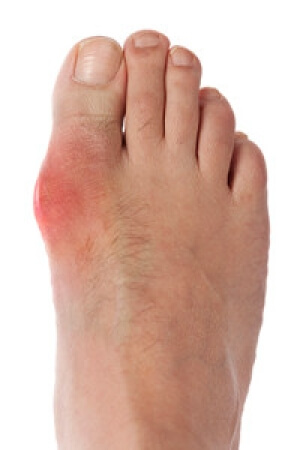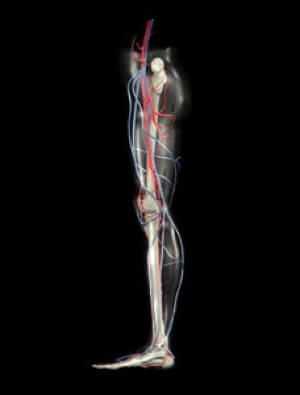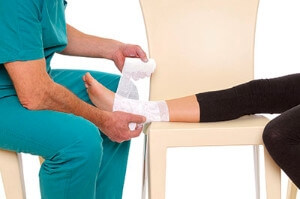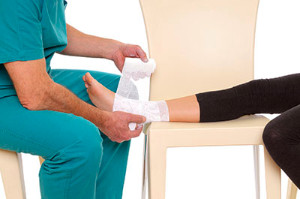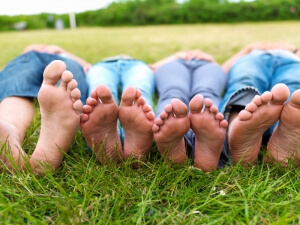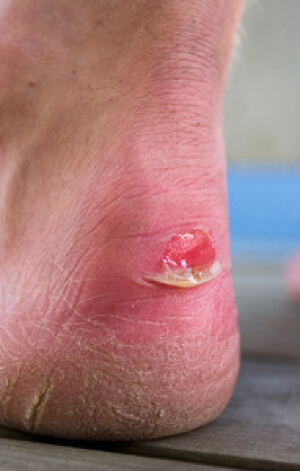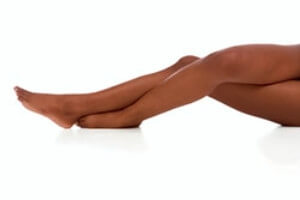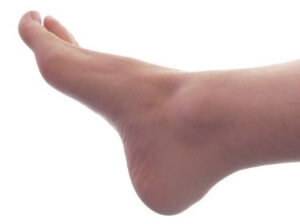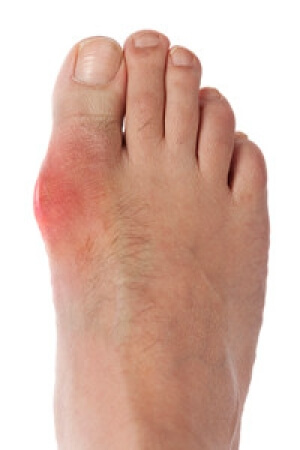Connect With Us
Featured Articles
Super User
Truck Driver Lifestyle Problematic For Gout Sufferers
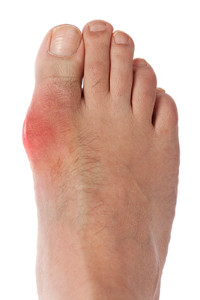 Gout, a form of arthritis that causes intense pain in the body’s joints, can be a particularly problematic condition for truck drivers due to their lifestyle and eating habits. While sedentariness is not a cause, eating purine-rich foods, such as meats, gravy, and beer, certainly is. Other factors include being overweight, diabetic, over the age of 45, having high cholesterol, hypertension, taking certain medications for said hypertension, and not drinking enough water. Prevention is key in combating gout, and this can be achieved by avoiding risk foods and staying hydrated.
Gout, a form of arthritis that causes intense pain in the body’s joints, can be a particularly problematic condition for truck drivers due to their lifestyle and eating habits. While sedentariness is not a cause, eating purine-rich foods, such as meats, gravy, and beer, certainly is. Other factors include being overweight, diabetic, over the age of 45, having high cholesterol, hypertension, taking certain medications for said hypertension, and not drinking enough water. Prevention is key in combating gout, and this can be achieved by avoiding risk foods and staying hydrated.
Gout is a foot condition that requires certain treatment and care. If you are seeking treatment, contact one of our podiatrists from New Jersey Foot & Ankle Centers. Our doctors will treat your foot and ankle needs.
What Is Gout?
Gout is a type of arthritis caused by a buildup of uric acid in the bloodstream. It often develops in the foot, especially the big toe area, although it can manifest in other parts of the body as well. Gout can make walking and standing very painful and is especially common in diabetics and the obese.
People typically get gout because of a poor diet. Genetic predisposition is also a factor. The children of parents who have had gout frequently have a chance of developing it themselves.
Gout can easily be identified by redness and inflammation of the big toe and the surrounding areas of the foot. Other symptoms include extreme fatigue, joint pain, and running high fevers. Sometimes corticosteroid drugs can be prescribed to treat gout, but the best way to combat this disease is to get more exercise and eat a better diet.
If you have any questions please feel free to contact our office located in Oradell, NJ . We offer the newest diagnostic and treatment technologies for all your foot and ankle needs.
Shoes Can Give Foot Massages Now
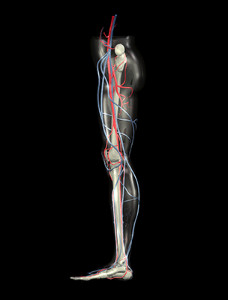 It seems today like new technology is constantly shaping and reshaping the world. The medical field is certainly no exception. Father and son team David and Matt Mayer are currently manufacturing “therapeutic shoes” under the brand name Footbeat. The shoes are knit sneakers with a tiny engine built into the insole. This delivers cyclic pressure to the sole of the foot. The goal is to increase blood circulation by giving what amounts to an automated foot massage. This may prove to be very useful to people suffering from poor blood flow. The price of the shoes comes in at $450, so before you shell out the cash be sure to talk to your podiatrist first.
It seems today like new technology is constantly shaping and reshaping the world. The medical field is certainly no exception. Father and son team David and Matt Mayer are currently manufacturing “therapeutic shoes” under the brand name Footbeat. The shoes are knit sneakers with a tiny engine built into the insole. This delivers cyclic pressure to the sole of the foot. The goal is to increase blood circulation by giving what amounts to an automated foot massage. This may prove to be very useful to people suffering from poor blood flow. The price of the shoes comes in at $450, so before you shell out the cash be sure to talk to your podiatrist first.
Poor circulation is a serious condition and needs immediate medical attention. If you have any concerns with poor circulation in your feet contact one of our podiatrists of New Jersey Foot & Ankle Centers. Our doctors will treat your foot and ankle needs.
Poor Circulation in the Feet
Poor blood circulation in the feet and legs is can be caused by peripheral artery disease (PAD), which is the result of a buildup of plaque in the arteries.
Plaque buildup or atherosclerosis results from excess calcium and cholesterol in the bloodstream. This can restrict the amount of blood which can flow through the arteries. Poor blood circulation in the feet and legs are sometimes caused by inflammation in the blood vessels, known as vasculitis.
Causes
Lack of oxygen and oxygen from poor blood circulation restricts muscle growth and development. It can also cause:
- Muscle pain, stiffness, or weakness
- Numbness or cramping in the legs
- Skin discoloration
- Slower nail & hair growth
- Erectile dysfunction
Those who have diabetes or smoke are at greatest risk for poor circulation, as are those who are over 50. If you have poor circulation in the feet and legs it may be caused by PAD and is important to make changes to your lifestyle in order to reduce risk of getting a heart attack or stroke. Exercise and maintaining a healthy lifestyle will dramatically improve conditions.
As always, see a podiatrist as he or she will assist in finding a regimen that suits you. A podiatrist can also prescribe you any needed medication.
If you have any questions please feel free to contact our office located in Oradell, NJ . We offer the newest diagnostic and treatment technologies for all your foot and ankle needs.
Diabetic Patients and Cold Weather
Diabetic patients who have poor circulation and nerve damage are most prone to foot problems, especially in cold weather conditions. Moisture from cold weather can collect in your shoes and socks, soaking your feet, leading to the propagation of bacteria and possibly an infection. Diabetic patients should remember to change their socks often when going out in cold weather, and to moisturize their dry feet. Avoid using warming aids on your feet, as this can be dangerous for patients who have numbness due to peripheral neuropathy. Properly-fitting shoes, combined with sufficient soles and moisture-wicking socks, are necessary to ensure proper care for diabetic patients.
Diabetic foot care is important in preventing foot ailments such as ulcers. If you are suffering from diabetes or have any other concerns about your feet, contact one of our podiatrists from New Jersey Foot & Ankle Centers. Our doctors can provide the care you need to keep you pain-free and on your feet.
Diabetic Foot Care
Diabetes affects millions of people every year. The condition can damage blood vessels in many parts of the body, especially the feet. Because of this, taking care of your feet is essential if you have diabetes, and having a podiatrist help monitor your foot health is highly recommended.
The Importance of Caring for Your Feet
- Routinely inspect your feet for bruises or sores.
- Wear socks that fit your feet comfortably.
- Wear comfortable shoes that provide adequate support.
Patients with diabetes should have their doctor monitor their blood levels, as blood sugar levels play such a huge role in diabetic care. Monitoring these levels on a regular basis is highly advised.
It is always best to inform your healthcare professional of any concerns you may have regarding your feet, especially for diabetic patients. Early treatment and routine foot examinations are keys to maintaining proper health, especially because severe complications can arise if proper treatment is not applied.
If you have any questions please feel free to contact our office located in Oradell, NJ . We offer the newest diagnostic and treatment technologies for all your foot and ankle needs.
Read more about How to Care for Diabetic FootKeeping kids free of foot injuries
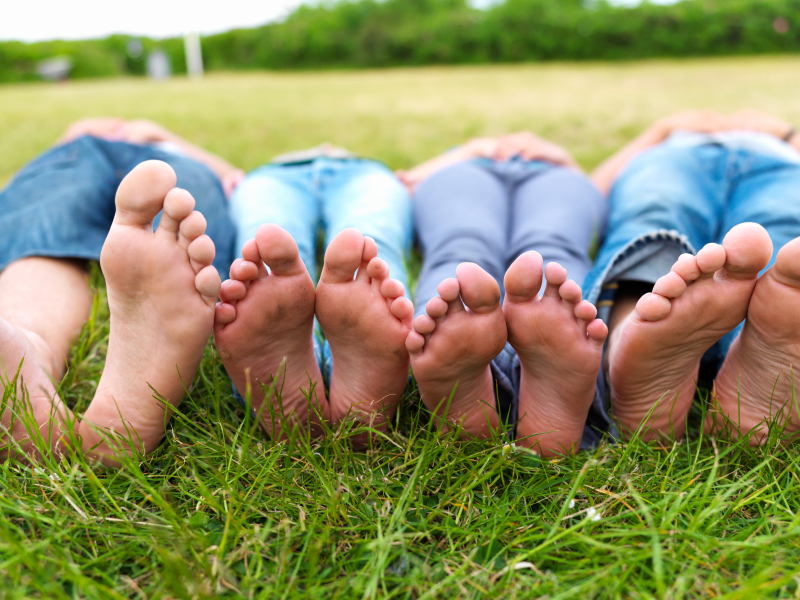 With the approach of warmer weather, many children are gearing up and preparing for fair-weather sports such as softball and soccer. Regardless of the sport your child may be participating in, injuries are bound to occur. To help protect your child’s feet for the upcoming season, consider the following tips. Be sure to have protective tape available to wrap around the ankles, as tape can help prevent or brace sprains or fractures. Be sure your child is wearing shoes appropriate for the sport he or she is participating in, as this can not only improve your child’s performance, but also protect him or her from injury.
With the approach of warmer weather, many children are gearing up and preparing for fair-weather sports such as softball and soccer. Regardless of the sport your child may be participating in, injuries are bound to occur. To help protect your child’s feet for the upcoming season, consider the following tips. Be sure to have protective tape available to wrap around the ankles, as tape can help prevent or brace sprains or fractures. Be sure your child is wearing shoes appropriate for the sport he or she is participating in, as this can not only improve your child’s performance, but also protect him or her from injury.
Making sure that your children maintain good foot health is very important as they grow. If you have any questions, contact one of our podiatrists of New Jersey Foot & Ankle Centers. Our doctors can provide the care you need to keep you pain-free and on your feet.
Keeping Children's Feet Healthy
Having healthy feet during childhood can help prevent medical problems later in life, namely in the back and legs. As children grow, their feet require different types of care. Here are some things to consider...
Although babies do not walk yet, it is still very important to take care of their feet.
Avoid putting tight shoes or socks on his or her feet.
Allow the baby to stretch and kick his or her feet to feel comfortable.
As a toddler, kids are now on the move and begin to develop differently. At this age, toddlers are getting a feel for walking, so don’t be alarmed if your toddler is unsteady or ‘walks funny’.
As your child gets older, it is important to teach them how to take care of their feet.
Show them proper hygiene to prevent infections such as fungus.
Be watchful for any pain or injury.
Have all injuries checked by a doctor as soon as possible.
Comfortable, protective shoes should always be worn, especially at play.
If you have any questions please feel free to contact our office located in Oradell, NJ . We offer the newest diagnostic and treatment technologies for all your foot and ankle needs.
Read more about What to Do to Keep Your Child’s Feet HealthyHow to avoid blisters on the feet
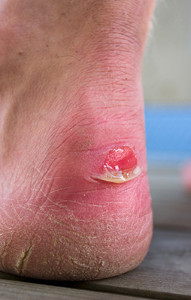 Blisters are one of the most common conditions that can affect the feet. Blisters tend to develop due to excessive friction between the skin of the foot and one’s shoes or socks. They are more likely to occur while wearing ill-fitting shoes or while performing certain activities that the body may not be used to doing, such as running. Blisters can be avoided by wearing friction-reducing socks, giving the feet ample time to rest in between hard-hitting sports and activity, and using paper-tape in blister-prone areas.
Blisters are one of the most common conditions that can affect the feet. Blisters tend to develop due to excessive friction between the skin of the foot and one’s shoes or socks. They are more likely to occur while wearing ill-fitting shoes or while performing certain activities that the body may not be used to doing, such as running. Blisters can be avoided by wearing friction-reducing socks, giving the feet ample time to rest in between hard-hitting sports and activity, and using paper-tape in blister-prone areas.
Blisters are prone to making everyday activities extremely uncomfortable. If your feet are hurting, contact one of our podiatrists of New Jersey Foot & Ankle Centers. Our doctors can provide the care you need to keep you pain-free and on your feet.
Foot Blisters
Foot blisters develop as a result of constantly wearing tight or ill-fitting footwear. This happens due to the constant rubbing from the shoe, which can often lead to pain.
What Are Foot Blisters?
A foot blister is a small fluid-filled pocket that forms on the upper-most layer of the skin. Blisters are filled with clear fluid and can lead to blood drainage or pus if the area becomes infected.
How Do Blisters Form?
Blisters on the feet are often the result of constant friction of skin and material, usually by shoe rubbing. Walking in sandals, boots, or shoes that don’t fit properly for long periods of time can result in a blister. Having consistent foot moisture and humidity can easily lead to blister formation.
Prevention & Treatment
It is important to properly care for the affected area in order to prevent infection and ease the pain. Do not lance the blister and use a Band-Aid to provide pain relief. Also, be sure to keep your feet dry and wear proper fitting shoes. If you see blood or pus in a blister, seek assistance from a podiatrist.
If you have any questions, please feel free to contact our office located in Oradell, NJ . We offer the newest diagnostic and treatment technologies for all your foot care needs.
Read more about Blisters on the FeetGood body health begins with the feet
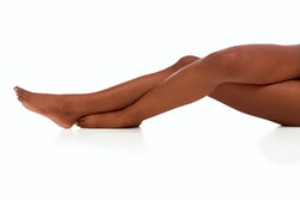 Being at the base of the body, the feet and ankles are often overlooked by the general public when it comes to the body’s health. Bad foot health habits can quickly add up to serious health problems. To keep the feet healthy, consider the following steps. Inspect the feet daily and look for changes in the general appearance of the foot, such as changes in color or texture, odd swelling, or changes in the toenails. Practice good foot hygiene by washing the feet well and drying them thoroughly afterwards. Moisturize the feet to avoid the formation of cracked heels and fissures. Always wear appropriate, comfortable footwear and change the shoes often.
Being at the base of the body, the feet and ankles are often overlooked by the general public when it comes to the body’s health. Bad foot health habits can quickly add up to serious health problems. To keep the feet healthy, consider the following steps. Inspect the feet daily and look for changes in the general appearance of the foot, such as changes in color or texture, odd swelling, or changes in the toenails. Practice good foot hygiene by washing the feet well and drying them thoroughly afterwards. Moisturize the feet to avoid the formation of cracked heels and fissures. Always wear appropriate, comfortable footwear and change the shoes often.
Everyday foot care is very important to prevent infection and other foot ailments. If you need your feet checked, contact one of our podiatrists from New Jersey Foot & Ankle Centers. Our doctors can provide the care you need to keep you pain-free and on your feet.
Everyday Foot Care
Often, people take care of their bodies, face and hair more so than they do for their feet. But the feet are a very important aspect of our bodies, and one that we should pay more attention to. Without our feet, we would not be able to perform most daily tasks.
It is best to check your feet regularly to make sure there are no new bruises or cuts that you may not have noticed before. For dry feet, moisturizer can easily be a remedy and can be applied as often as necessary to the affected areas. Wearing shoes that fit well can also help you maintain good foot health, as well as making it easier to walk and do daily activities without the stress or pain of ill-fitting shoes, high heels, or even flip flops. Wearing clean socks with closed shoes is important to ensure that sweat and bacteria do not accumulate within the shoe. Clean socks help to prevent Athlete’s foot, fungi problems, bad odors, and can absorb sweat.
If you have any questions please feel free to contact our office located in Oradell, NJ . We offer the newest diagnostic and treatment technologies for all your foot and ankle needs.
Read more about Every Day Foot CareDealing with Aches and Pains as We Age
 Arthritis and aching joints are one of the most prevalent complaints of people 55 years and over. Dr. Kendra Zuckerman of Main Line Health states, “arthritis technically means an inflammation of the joints.” Deborah Wolf, 76, shares her time between practicing law and playing tennis, and is not ready to slow down her rigorous schedule. However, after the development of arthritis in her knees, activity has become difficult. Dr. Zuckerman advises that exercise and weight-watching is important for arthritic patients, and that anti-inflammatory drugs can also help with the pain, too. Deborah works on knee strengthening and diet-planning to keep her pain at bay.
Arthritis and aching joints are one of the most prevalent complaints of people 55 years and over. Dr. Kendra Zuckerman of Main Line Health states, “arthritis technically means an inflammation of the joints.” Deborah Wolf, 76, shares her time between practicing law and playing tennis, and is not ready to slow down her rigorous schedule. However, after the development of arthritis in her knees, activity has become difficult. Dr. Zuckerman advises that exercise and weight-watching is important for arthritic patients, and that anti-inflammatory drugs can also help with the pain, too. Deborah works on knee strengthening and diet-planning to keep her pain at bay.
Proper foot care is something many older adults forget to consider. If you have any concerns about your feet and ankles, contact one of our podiatrists from New Jersey Foot & Ankle Centers. Our doctors can provide the care you need to keep you pain-free and on your feet.
The Elderly and Their Feet
As we age we start to notice many changes in our body, but the elder population may not notice them right away. Medical conditions may prevent the elderly to take notice of their foot health right away. Poor vision is a lead contributor to not taking action for the elderly.
Common Conditions
- Neuropathy – can reduce feeling in the feet and can hide many life-threatening medical conditions.
- Reduced flexibility – prevents the ability of proper toenail trimming, and foot cleaning. If left untreated, it may lead to further medical issues.
- Foot sores – amongst the older population can be serious before they are discovered. Some of the problematic conditions they may face are:
- Gouging toenails affecting nearby toe
- Shoes that don’t fit properly
- Pressure sores
- Loss of circulation in legs & feet
- Edema & swelling of feet and ankles
Susceptible Infections
Diabetes and poor circulation can cause general loss of sensitivity over the years, turning a simple cut into a serious issue.
If you have any questions please feel free to contact our office located in Oradell, NJ . We offer the newest diagnostic and treatment technologies for all your foot and ankle needs.
Read more about Elderly and their FeetElderly and their Feet
While proper foot care is important for everybody, senior citizens have the tendency to be more susceptible to certain foot conditions. The elderly should therefore be well informed about any problems that may arise and about what they can do to properly avoid or treat them.
Some of the most common foot problems seniors are susceptible to include foot ulcers, ingrown toenails, fallen arches, and fungal nails. A foot ulcer is an open sore on the foot and can be a result of diabetes and decreased sensation in the feet. An ingrown toenail is defined as when the nail grows into the side of the toe. Fallen arches are indicated by the instep of the foot collapsing. A fungal nails is a condition that results in deformed and discolored toenails.
In order to avoid these conditions it is recommended that the feet be inspected by the patient on a regular basis. If these inspections are carried out routinely, there is a good likelihood that problems can be identified before they become severe, or can even be avoided altogether. If any abnormality is discovered, it is important that the individual consult a podiatrist for diagnosis and information on treatment options.
Proper foot hygiene is also important. Making sure that you always have clean, dry socks on can be a major deterrent to many different problems including bacterial infections, foot odor, and certain types of fungus. Wet feet are a major cause of many of these problems. If your socks get wet, it is important to change them. Walking around in wet socks may not only lead to various infections, but can irritate the skin and result in a number of various complications. Clean, dry feet are less likely to be affected by fungal and other infections.
As people age, the fat present on your feet begins to deteriorate. The protective nature of this fat keeps the feet healthy by providing a barrier between your bones and the ground. This also aids in giving the skin on the feet a certain amount of elasticity. This is one factor that causes elderly people to develop some serious foot issues. Foot moisturizers can be helpful to avoid certain problems associated with this. However, water-based moisturizers do not work as well for elderly people as they do for the young. Instead, it is more effective to use an emollient instead. An emollient is effective because it binds the water in the foot, keeping it from becoming absorbed too readily which will result in dry skin. Emollients also have a special property called occlusion, which provides a layer of oil on the skin. This layer prevents the foot from drying up and can be very effective in treating dry skin disorders. If you can keep the skin on your feet healthy, this will substantially reduce the number of foot problems you will encounter in old age.
Proper footwear is another way to keep feet healthy. Shoes that fit well and provide proper support help prevent ingrown toenails and fallen arches.
Certain medical conditions such as diabetes or poor blood circulation increase the risk for foot issues. For individuals with any of these conditions it is extremely important to conduct regular foot inspections to make sure that there are no sores or infections present.
What Are Plantar Warts?
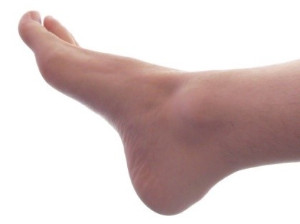 There are over 100 different varieties of HPV, or human papilloma virus. Nearly 12% of the global population have had warts at one time, and plantar warts are but one of these types. They all share one basic characteristic, they have the ability to infect skin cells. Many people, when they hear the term HPV, think that it refers to genital warts. But this is not the case, and HPV can manifest itself in many different forms. Plantar warts occur on the feet, typically on the palms or the soles. They can be flat or raised, and usually occur in dry, cracked areas of the foot. Treatments vary in scope and effectiveness. If you think you may have a plantar wart, talk to your podiatrist and go through the treatment options available.
There are over 100 different varieties of HPV, or human papilloma virus. Nearly 12% of the global population have had warts at one time, and plantar warts are but one of these types. They all share one basic characteristic, they have the ability to infect skin cells. Many people, when they hear the term HPV, think that it refers to genital warts. But this is not the case, and HPV can manifest itself in many different forms. Plantar warts occur on the feet, typically on the palms or the soles. They can be flat or raised, and usually occur in dry, cracked areas of the foot. Treatments vary in scope and effectiveness. If you think you may have a plantar wart, talk to your podiatrist and go through the treatment options available.
Plantar warts can be very uncomfortable. If you need your feet checked, contact one of our podiatrists from New Jersey Foot & Ankle Centers. Our doctors will assist you with all of your foot and ankle needs.
About Plantar Warts
Plantar warts are the result of HPV, or human papillomavirus, getting into open wounds on the feet. They are mostly found on the heels or balls of the feet.
While plantar warts are generally harmless, those experiencing excessive pain or those suffering from diabetes or a compromised immune system require immediate medical care. Plantar warts are easily diagnosed, usually through scraping off a bit of rough skin or by getting a biopsy.
Symptoms
- Lesions on the bottom of your feet, usually rough and grainy
- Hard or thick callused spots
- Wart seeds, which are small clotted blood vessels that look like little black spots
- Pain, discomfort, or tenderness of your feet when walking or standing
Treatment
- Freezing
- Electric tool removal
- Laser Treatment
- Topical Creams (prescription only)
- Over-the-counter medications
To help prevent developing plantar warts, avoid walking barefoot over abrasive surfaces that can cause cuts or wounds for HPV to get into. Avoiding direct contact with other warts, as well as not picking or rubbing existing warts, can help prevent the further spread of plantar warts. However, if you think you have developed plantar warts, speak to your podiatrist. He or she can diagnose the warts on your feet and recommend the appropriate treatment options.
If you have any questions please feel free to contact our office located in Oradell, NJ . We offer the newest diagnostic and treatment technologies for all your foot and ankle needs.
Read more about All About Plantar WartsWhat is Gout?
 Gout is one of the most commonly recorded medical conditions throughout the world’s history. This condition is caused by a buildup of uric acid in the joints. Uric acid comes from purines, which are found in meat products. The body can’t always get rid of all the uric acid, and this results in the formation of crystals which accumulate in the joints. Gout usually occurs near the big toe, and its symptoms include pain, swelling, tenderness, and reddish discoloration. Unfortunately, the pain associated with gout could last for days. You are more likely to have gout if you have high blood pressure, a heavy alcohol intake, or if you take diuretics. Be sure to watch your diet, and consult with a meddical professional.
Gout is one of the most commonly recorded medical conditions throughout the world’s history. This condition is caused by a buildup of uric acid in the joints. Uric acid comes from purines, which are found in meat products. The body can’t always get rid of all the uric acid, and this results in the formation of crystals which accumulate in the joints. Gout usually occurs near the big toe, and its symptoms include pain, swelling, tenderness, and reddish discoloration. Unfortunately, the pain associated with gout could last for days. You are more likely to have gout if you have high blood pressure, a heavy alcohol intake, or if you take diuretics. Be sure to watch your diet, and consult with a meddical professional.
Gout is a foot condition that requires certain treatment and care. If you are seeking treatment, contact one of our podiatrists from New Jersey Foot & Ankle Centers. Our doctors will treat your foot and ankle needs.
What Is Gout?
Gout is a type of arthritis caused by a buildup of uric acid in the bloodstream. It often develops in the foot, especially the big toe area, although it can manifest in other parts of the body as well. Gout can make walking and standing very painful and is especially common in diabetics and the obese.
People typically get gout because of a poor diet. Genetic predisposition is also a factor. The children of parents who have had gout frequently have a chance of developing it themselves.
Gout can easily be identified by redness and inflammation of the big toe and the surrounding areas of the foot. Other symptoms include extreme fatigue, joint pain, and running high fevers. Sometimes corticosteroid drugs can be prescribed to treat gout, but the best way to combat this disease is to get more exercise and eat a better diet.
If you have any questions please feel free to contact our office located in Oradell, NJ . We offer the newest diagnostic and treatment technologies for all your foot and ankle needs.
Featured Articles
- July 2025
- June 2025
- May 2025
- April 2025
- March 2025
- February 2025
- January 2025
- December 2024
- November 2024
- October 2024
- September 2024
- August 2024
- July 2024
- June 2024
- May 2024
- April 2024
- March 2024
- February 2024
- January 2024
- December 2023
- November 2023
- October 2023
- September 2023
- August 2023
- July 2023
- June 2023
- May 2023
- April 2023
- March 2023
- February 2023
- January 2023
- December 2022
- November 2022
- October 2022
- September 2022
- August 2022
- July 2022
- June 2022
- May 2022
- April 2022
- March 2022
- February 2022
- January 2022
- December 2021
- November 2021
- October 2021
- September 2021
- August 2021
- July 2021
- June 2021
- May 2021
- April 2021
- March 2021
- February 2021
- December 2020
- November 2020
- August 2020
- June 2020
- April 2020
- March 2020
- February 2020
- January 2020
- December 2019
- November 2019
- October 2019
- September 2019
- August 2019
- July 2019
- June 2019
- May 2019
- April 2019
- March 2019
- February 2019
- January 2019
- December 2018
- November 2018
- October 2018
- September 2018
- August 2018
- June 2018
- May 2018
- April 2018
- March 2018
- February 2018
- January 2018
- December 2017
- November 2017
- October 2017
- September 2017
- August 2017
- July 2017
- June 2017
- May 2017
- April 2017
- March 2017
- February 2017
- January 2017
